Description
Diclofenac sodium is a topical pain-relieving agent and anti-inflammatory agent. Its behaviour resembles that of a non-steroidal anti-inflammatory drug (NSAID). It is commonly available in gel, cream, or liquid form to be applied topically on the skin. Diclofenac potassium works by blocking the action of cyclooxygenase (COX-2) enzymes. Cyclooxygenase is involved in the production of prostaglandins which are hormone-like substances that trigger pain and inflammation. By inhibiting COX-2, Diclofenac sodium reduces the production of prostaglandins, leading to a decrease in pain and inflammation. Applicable directly to the source of pain, diclofenac potassium provides localized relief without the drawbacks of oral medications. Following the instructions of medication for proper application and dosage ensures maximum efficacy with as minimal risk as possible. Like any drug, Diclofenac sodium is not for everyone or for every condition. Alternative methods should be discussed with a healthcare provider or doctor.
Ingredients
Diclofenac PotassiumDrug Class
Nonsteroidal Anti-inflammatory Drug (NSAID)
Dosage Form
Capsule
Uses
Unveiling its multifaceted uses and transformative applications as follows:
- Usually used to reduce inflammation and as a pain reliever (analgesic)
- Help treat different types of arthritis, including osteoarthritis, rheumatoid arthritis and ankylosing spondylitis
- Relief for pain and inflammation due to musculoskeletal and joint disorders such as bursitis, tendinitis, and gout attacks
- Relief of menstrual cramps
- Can be used for mild to moderate pain, reducing fever and treating headaches, muscle aches, and backaches
Dosage
Tailoring Treatment for Optimal Health, Prescribed Medication Dosage is:
- For osteoarthritis- 50mg tablet taken orally, 3 times a day, preferably with food.
- For rheumatoid arthritis- 50mg tablet taken orally, 3 times a day.
- For ankylosing spondylitis- 50mg tablet taken orally, 3 times a day.
- For acute pain- 50mg tablet taken orally, 3 times a day.
In case of Overdose
An overdose of Diclofenac sodium can cause a range of severe symptoms, including nausea, vomiting, diarrhea, constipation, heartburn, dizziness, drowsiness, confusion, anxiety, tremors, seizures, hives, itching, rash, swelling, and trouble breathing. It is imperative to seek immediate medical attention as the symptoms can be life-threatening and require emergency care. Treatment for an overdose may involve supportive care, gastrointestinal decontamination, and tailored interventions to address the specific effects of the overdose. It is important to closely monitor the symptoms and seek professional help promptly to avoid any complications or permanent damage.
Missed Dose
When it comes to managing your medications like Diclofenac sodium, it is vital to adhere to your prescribed treatment plan and ensure you don’t miss any doses to take full advantage of the benefits of the medication and minimize possible side effects. If you happen to miss a dose, you should prioritize catching up as soon as possible. If it’s almost time for your next scheduled dose, consider taking your missed dose right away and then returning to your regular schedule. This helps to ensure that you don’t fall behind in treating your condition effectively. However, if it has been longer since your last dose, it is important to consult your doctor or pharmacist to assess your options. They will advise you on the best course of action, whether to take your usual dose right away or to wait until the next dosing schedule. This advice is tailored to your specific medication and health condition, ensuring you optimize the benefits of the medication. It is important to remember that you should not take extra doses or double up on doses without first consulting your healthcare provider. Taking additional doses without professional advice can lead to unwanted side effects or safety concerns. Always consult your doctor or pharmacist before taking any medication to ensure the safe and effective delivery of the treatment plan personalized for you.
How To Use
Take diclofenac sodium exactly as prescribed by your healthcare provider, usually orally with a full glass of water. It can be taken with food or milk to prevent stomach upset. Swallow the tablet whole without crushing or chewing it.
When Not to Use
Discerning instances where this medication may not be appropriate:
- Diclofenac sodium is a commonly used medication that belongs to the class of drugs called NSAIDs (non-steroidal anti-inflammatory drugs).
- It is used to relieve pain and reduce inflammation and swelling in a variety of conditions.
- Make sure to disclose any allergies to your doctor or pharmacist to avoid adverse effects.
- Do not take Diclofenac sodium if you have a history of stomach ulcers or other gastrointestinal issues.
- Notify your medical professional if you have experienced symptoms such as stomach pain, heartburn, or acid reflux.
- Asthma or other respiratory issues can potentially cause adverse effects on the respiratory system with NSAIDs usage.
- Avoid taking Diclofenac sodium if you have a history of heart disease or stroke as it can cause an increased risk of cardiovascular and cerebrovascular events.
- Since Diclofenac can place undue stress on the kidneys and cause kidney failure, do not take it if you have kidney disease or are at risk for kidney damage.
Side Effects
Unraveling the side effects lurking behind this medications are as follows:
- Gastrointestinal complaints
- Bleeding or ulceration of the stomach or intestines
- Kidney toxicity, especially in patients with preexisting kidney disease or diabetes mellitus
- Fluid retention and edema which may cause swelling and leg cramps
- Increased risk of bleeding and hemorrhage due to inhibition of platelet aggregation
- Asthmatic symptoms including tightness of the chest and shortness of breath
- Allergic reactions including hives, itching, and bronchospasm
- Hypersensitivity reactions including anaphylaxis
- Hallucinations, coma, and seizures
- Elevated blood pressure and hypertension
- Heart complications including heart attack, stroke, and peripheral arterial disease
- Liver dysfunction, failure, or damage
- Severe adverse reactions include holes in the stomach or intestines which can be life
- threatening
Precautions & Warnings
Here are some important precautions and warnings regarding Diclofenac sodium:
- Diclofenac sodium, a nonsteroidal anti-inflammatory drug (NSAID), carries significant risks of cardiovascular (CV) and gastrointestinal (GI) adverse events.
- Clinical trials have demonstrated an increased risk of serious cardiovascular thrombotic events, including myocardial infarction (MI) and stroke, particularly with prolonged use or higher doses.
- This cardiovascular risk applies to patients with and without known CV disease, though individuals with preexisting conditions face a higher absolute risk.
- Concurrent use of aspirin does not reduce this CV risk and may increase the risk of serious GI events.
- Diclofenac is contraindicated after coronary artery bypass graft (CABG) surgery and should be used cautiously in post-MI patients, as studies indicate a higher incidence of reinfarction and death in these populations.
- NSAIDs, including diclofenac, may cause serious GI complications, such as bleeding, ulcers, and perforation, even without warning symptoms.
- Risk factors for GI events include a history of ulcers, prolonged NSAID use, and concomitant use of corticosteroids, anticoagulants, or SSRIs.
- Diclofenac has also been associated with hepatotoxicity, renal toxicity, hypertension, heart failure, and severe skin reactions, including Stevens-Johnson syndrome.
- To minimize risks, diclofenac should be used at the lowest effective dose for the shortest duration, with close monitoring for signs of toxicity, especially in high-risk patients.
Drug Interactions
Drug interactions with diclofenac sodium include:
- Anticoagulants (e.g., warfarin) (may increase the risk of bleeding- monitor INR closely)
- Other NSAIDs (e.g., ibuprofen) (may increase the risk of gastrointestinal bleeding and ulceration)
- Antihypertensives (e.g., ACE inhibitors, diuretics) (may reduce the effectiveness of blood pressure-lowering medications)
- Corticosteroids (e.g., prednisone) (may increase the risk of gastrointestinal adverse effects)
- Lithium (may increase lithium levels and risk of toxicity- monitor serum levels)
- Methotrexate (may increase the toxicity of methotrexate- monitor for adverse effects)
- CYP2C9 inhibitors (e.g., fluconazole) (may increase diclofenac levels and risk of side effects)
- Cyclosporine (may increase the risk of renal toxicity)
- Antidiabetic agents (e.g., metformin) (no significant interaction but monitor for any changes in blood glucose)
Storage/Disposal
Diclofenac sodium is a medicine that should be stored at room temperature in a cool, dry place. For preservation purposes, it is best to keep the medication in an airtight container to avoid any exposure to moisture or oxygen. It is also important to keep the medicine in a secure location away from children and pets as well as out of direct sunlight and heat. If you have any specific questions or concerns regarding the storage of Diclofenac sodium , it is best to consult a medical professional for guidance based on your circumstances.
Laboratory Screening
When taking Diclofenec sodium USP 50mg, it is important to undergo certain laboratory tests to monitor your health and ensure the safe usage of this medication. Before you start taking this medication, your doctor will likely recommend routine blood tests to check your liver and kidney function, as well as your blood cell count. These tests establish a baseline for your body’s functioning and are particularly important for monitoring any potential impacts that the medication may have on these essential organs. Periodic blood pressure measurements may also be advised while taking this medication to ensure that it is not causing any adverse effects on your blood pressure levels. It is essential to inform your doctor about the results of these tests, particularly if you notice any concerning changes in your body or symptoms that could indicate adverse effects of the medication. Therefore, laboratory testing while taking Diclofenec sodium USP 50mg is essential for your safety and well-being, allowing your doctor to manage your treatment effectively and catch any potential problems early on.
Voren 50 mg (Diclofenac Sodium) Cap 100’s
₨ 14
43 in stock


Get Your Healthcare Delivered Nationwide!
No matter where you reside in Pakistan, medlife.pk brings your healthcare essentials straight to your doorstep! We partner with trusted shipping companies like TCS, M&P, LEOPARD Courier, Trax, and Call Courier for nationwide delivery.
For ultimate convenience, enjoy Cash on Delivery (COD) with a flat rate of Rs.299 across Pakistan. Prefer to pay upfront? Orders over Rs.3,000 receive free shipping when you pay with Bank Transfer, JazzCash, Easypaisa, or Credit/Debit Card. And the perks don't stop there! Orders exceeding Rs.5,000 with advance payment not only get free shipping, but also earn you a discount coupon for your next medlife.pk purchase.
Rest assured, our team meticulously packs and ships your order for safe arrival, ensuring you receive the genuine products you deserve. So, browse our selection, choose your payment method, and get ready to experience the medlife.pk difference! Happy shopping!


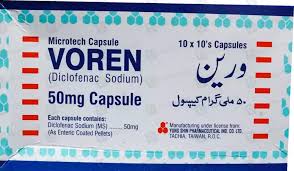


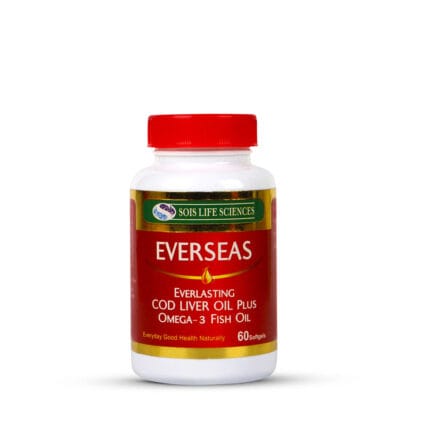

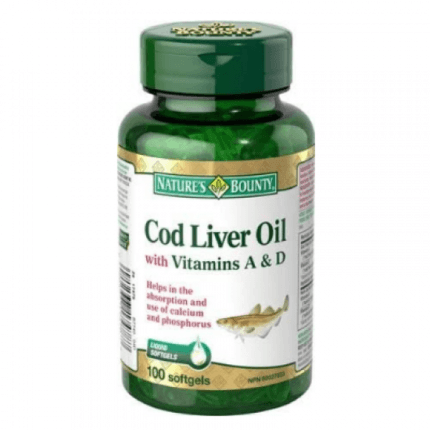


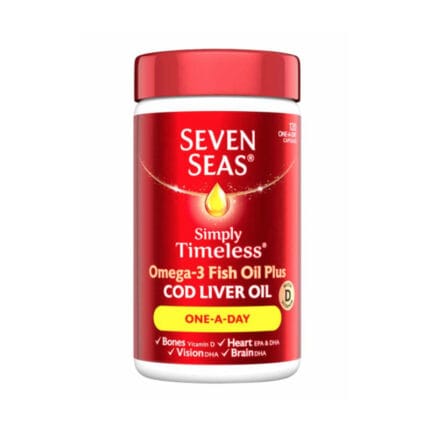
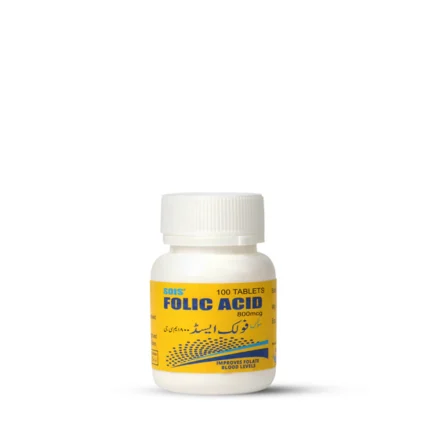








Reviews
There are no reviews yet.